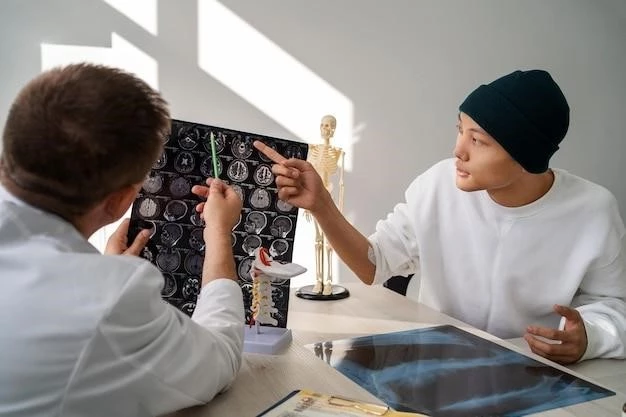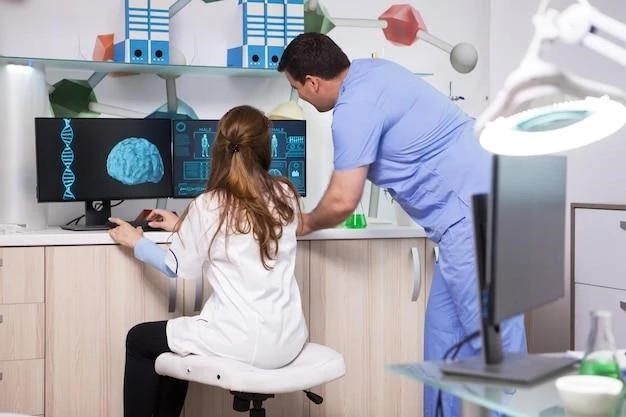Introduction
The Neurofibromatosis-Noonan syndrome (NFNS) is a rare genetic disorder with a complex clinical presentation merging characteristics of both neurofibromatosis and Noonan syndrome.
Background Information on Neurofibromatosis-Noonan Syndrome
Neurofibromatosis-Noonan syndrome (NFNS) is a rare genetic disorder characterized by a complex clinical presentation that combines features of both neurofibromatosis type 1 (NF1) and Noonan syndrome (NS). The syndrome was first recognized as a distinct entity around 30 years ago, representing a variant of NF1 with overlapping characteristics of NS. NFNS arises from mutations in the NF1 gene and involvement of the RAS-MAPK pathway. The syndrome manifests with a range of symptoms such as café-au-lait spots, neurofibromas, short stature, and typical facial features seen in NF1 and NS. Genetic testing and clinical evaluations play a crucial role in diagnosing NFNS.

Etiology and Genetics
Neurofibromatosis-Noonan syndrome (NFNS) is caused by mutations in the NF1 gene, leading to a rare genetic disorder merging features of neurofibromatosis type 1 and Noonan syndrome. The involvement of the RAS-MAPK pathway plays a significant role in the development of NFNS.
Relationship Between NF1 Gene Mutations and Neurofibromatosis-Noonan Syndrome
Neurofibromatosis-Noonan syndrome (NFNS) is intricately linked to mutations in the NF1 gene, the primary genetic cause of this rare disorder. These mutations result in a unique clinical spectrum that combines features of neurofibromatosis type 1 and Noonan syndrome. Understanding the association between NF1 gene mutations and NFNS is crucial for accurate diagnosis and effective management of individuals with this complex genetic condition.
Role of RAS-MAPK Pathway in the Development of Neurofibromatosis-Noonan Syndrome
Neurofibromatosis-Noonan syndrome (NFNS) is intricately linked to the RAS-MAPK pathway, a crucial signaling pathway that plays a significant role in the development of the syndrome. This pathway is involved in various cellular processes, and aberrations in this pathway contribute to the complex clinical manifestations seen in individuals with NFNS. Understanding the role of the RAS-MAPK pathway is essential for a comprehensive approach to the management and treatment of NFNS.

Clinical Presentation
Individuals with Neurofibromatosis-Noonan Syndrome present with a unique combination of clinical features from both Neurofibromatosis Type 1 and Noonan Syndrome. A multidisciplinary approach is vital for addressing the complex symptoms associated with this syndrome.
Distinctive Features of Neurofibromatosis-Noonan Syndrome
Neurofibromatosis-Noonan Syndrome is characterized by a unique combination of clinical features from both Neurofibromatosis Type 1 and Noonan Syndrome. The syndrome displays a complex spectrum of symptoms, including café-au-lait spots, neurofibromas, short stature, and distinctive facial features seen in both NF1 and Noonan Syndrome. Comprehensive genetic testing and clinical evaluation are essential for accurate diagnosis and management of individuals with this rare genetic disorder.
Comparison of Clinical Symptoms with Neurofibromatosis Type 1 and Noonan Syndrome
Neurofibromatosis-Noonan Syndrome (NFNS) presents a unique combination of clinical features from Neurofibromatosis Type 1 and Noonan Syndrome. Understanding the differences and similarities in symptoms between these conditions is crucial for accurate diagnosis and tailored management strategies for individuals affected by NFNS.
Diagnosis
Accurate diagnosis of Neurofibromatosis-Noonan Syndrome involves genetic testing for confirmation. A multidisciplinary approach is essential in identifying and managing this rare genetic disorder effectively.
Genetic Testing for the Confirmation of Neurofibromatosis-Noonan Syndrome
Genetic testing, particularly utilizing methods like whole exome sequencing (WES), plays a pivotal role in confirming a diagnosis of Neurofibromatosis-Noonan Syndrome (NFNS). Identifying the pathogenic variants, often in the NF1 gene, is essential for accurate diagnosis and appropriate management strategies for individuals with this rare genetic disorder.
Differential Diagnosis and Identification of Neurofibromatosis-Noonan Syndrome
Neurofibromatosis-Noonan Syndrome (NFNS) presents a unique challenge in differential diagnosis due to its overlap with both Neurofibromatosis Type 1 and Noonan Syndrome. Utilizing genetic testing, such as whole exome sequencing (WES), is pivotal in accurately identifying and distinguishing NFNS from other genetic disorders with similar clinical manifestations.
Treatment and Management
Addressing the symptoms of Neurofibromatosis-Noonan Syndrome requires a multidisciplinary approach to provide comprehensive care. Therapeutic strategies tailored to the individual’s needs play a pivotal role in managing this rare genetic disorder effectively.
Multidisciplinary Approach for Treating Neurofibromatosis-Noonan Syndrome
Managing Neurofibromatosis-Noonan Syndrome requires a collaborative effort from various healthcare professionals to address the diverse range of clinical features. A comprehensive approach involving specialists from genetics, dermatology, neurology, and other fields is essential in providing tailored care for individuals with this complex genetic disorder.
Therapeutic Strategies to Address the Symptoms of Neurofibromatosis-Noonan Syndrome
Patients with Neurofibromatosis-Noonan Syndrome benefit from therapeutic strategies tailored to their unique symptoms. A multidisciplinary team approach is essential to address the diverse clinical features associated with this rare genetic disorder effectively.
Prognosis and Complications
Individuals diagnosed with Neurofibromatosis-Noonan Syndrome may experience varied long-term outlooks. Understanding potential complications associated with this rare genetic disorder is crucial for proactive management.
Long-Term Outlook for Individuals with Neurofibromatosis-Noonan Syndrome
Individuals diagnosed with Neurofibromatosis-Noonan Syndrome may have varying long-term outcomes. Understanding the potential complications associated with this rare genetic disorder is crucial for proactive management and improving the overall quality of life for affected individuals.
Potential Complications Associated with Neurofibromatosis-Noonan Syndrome
Individuals with Neurofibromatosis-Noonan Syndrome may face various potential complications due to the complex nature of the disorder. Understanding these complications is essential for proactive management and effective treatment to enhance the quality of life for affected individuals.
